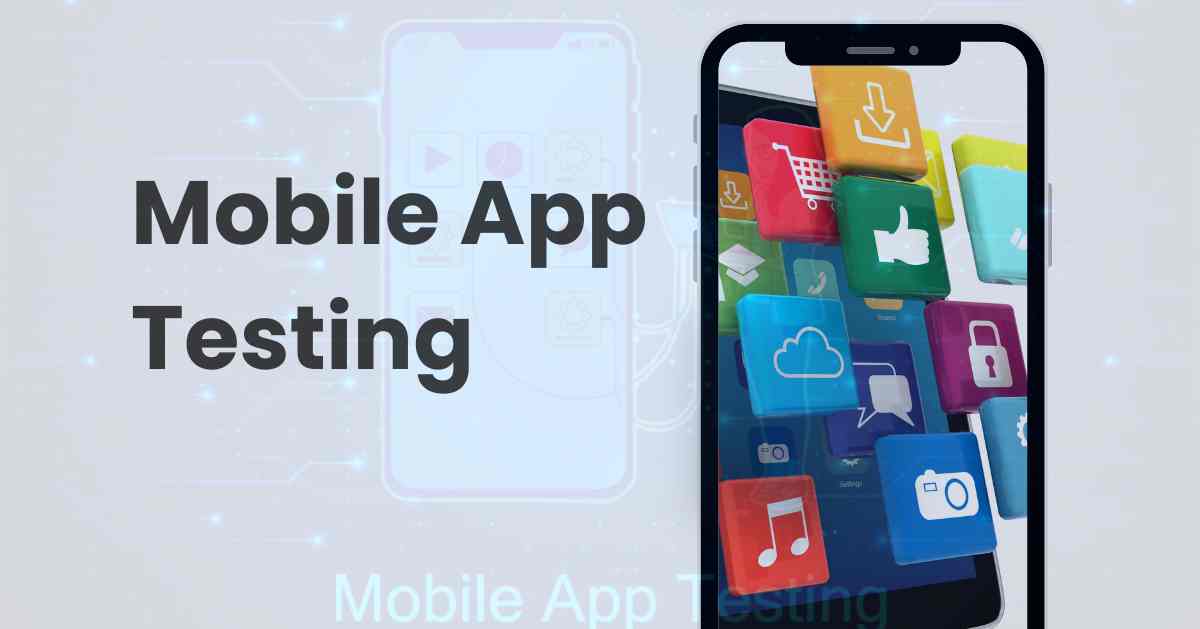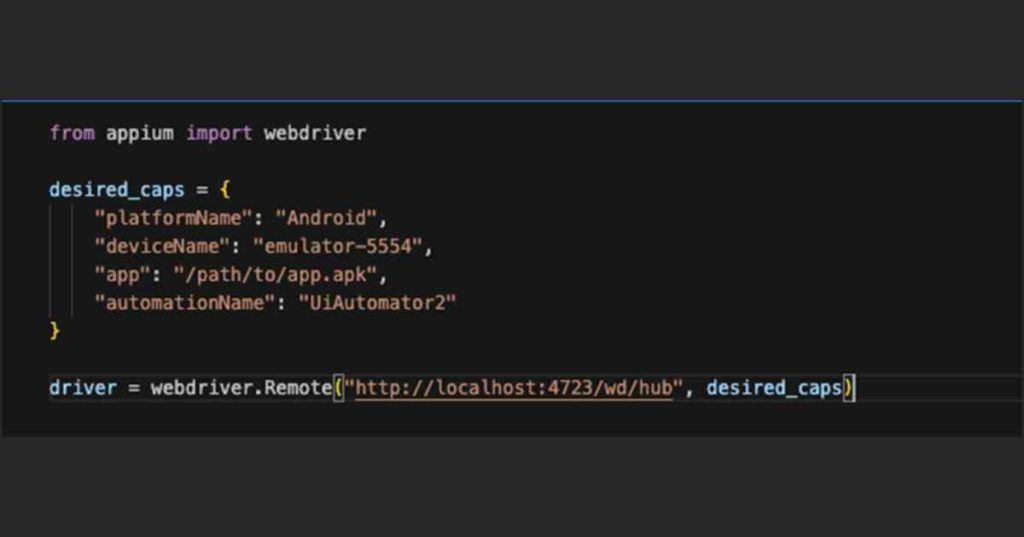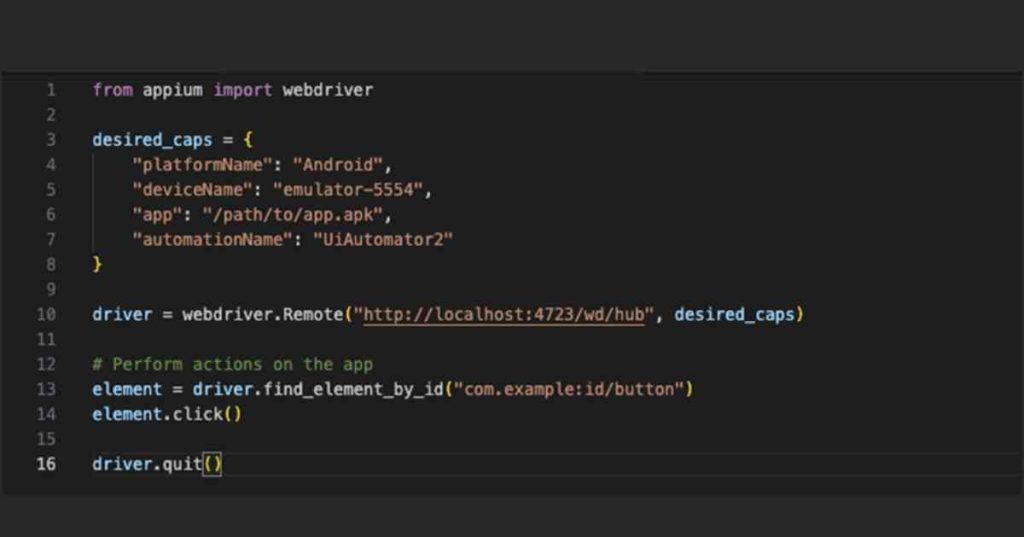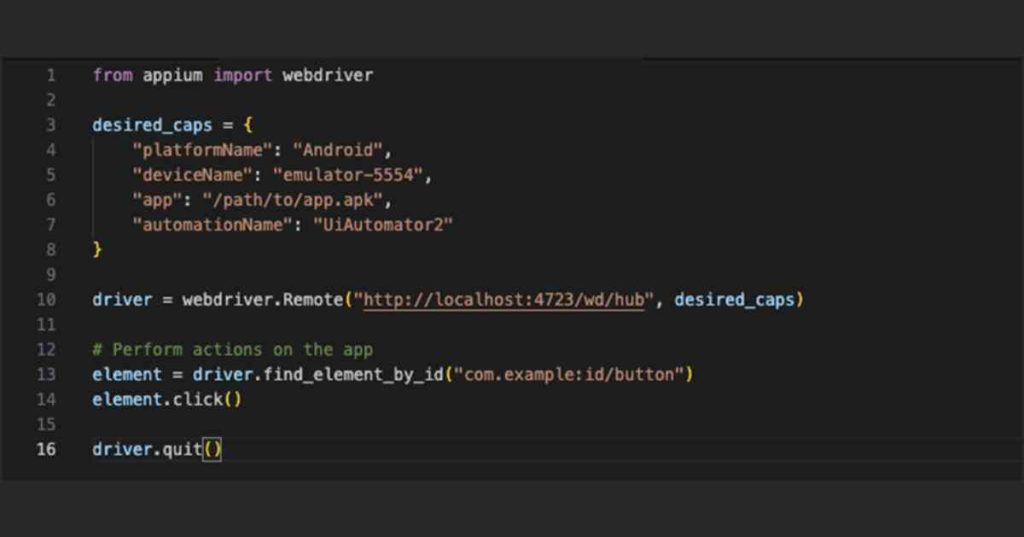Mobile App Testing Made Easy: Why Selenium Is Your Secret Weapon

Can you ignore the mobile compatibility of your app in 2025? No? You are right! More than 56% of the total online traffic comes from mobile devices! This significant number shows the clear popularity of smartphones and tablets when it comes to accessing daily applications and performing basic tasks. So, how do you ensure the proper functioning of your application on mobile devices? It’s simple! You deploy processes like Selenium mobile testing.
You might know Selenium for its capabilities of initiating automated web app testing. However, you should also be aware that by using its integration capabilities with Appium, you can use it for executing mobile app testing as well. Still confused about mobile testing with Selenium? Don’t worry! We’re here for you.
Our article will help you understand how Selenium can be the best secret weapon for mobile application testing. During our discussion, we will also go through some of its major advantages and all the best practices that you can deploy for ensuring efficient test automation.
Why Execute Selenium Mobile Testing
We already mentioned in the introduction that you will have to use the integration capabilities of Selenium to executive mobile testing. This might give rise to questions regarding using applications that natively support mobile app testing. To justify our choice of Selenium, we have mentioned some of the major features of this test suite below:
● Cross-Browser and Cross-Platform Compatibility
The most important advantage of using Selenium is the freedom to test apps across multiple browsers and platforms. While this suite is integrated with Appium, you can extend its power to mobile devices. This approach will allow you to run the tests on real Android and iOS devices instead of only relying on emulators or simulators.
● Open-Source and Cost-Effective
The complete architecture of Selenium is open-source. So, You do not have to invest a significant amount in expenses like subscriptions or platform renewals. It also has a massive community of enthusiastic developers and testers who are always ready to assist newcomers to this test suite. Therefore, Selenium is one of the most important options for small companies or individual testers.
● Supports Multiple Programming Languages
Have a preferred programming language for creating the best scripts? Selenium has got you covered! This is because Selenium supports all the major programming languages like JavaScript, Python, Ruby, and many others. The result? You do not have to go through the learning curve of a separate programming language just for the sake of this tool.
This flexibility also helps you to easily integrate Selenium into your already existing application testing environment and tech stack.
● Seamless Integration with Appium for Mobile Testing
Although Selenium itself is the best platform for executing automated web application testing, its integration with Appium makes it the best option for mobile automation. To give you a context, Appium is also another open-source platform for executive automated mobile application testing.
Since Appium also uses the WebDriver protocol, this means that all your Selenium test scripts will be reusable when working on both mobile application testing and web app testing. You also do not have to create separate test scripts for mobile and desktop.
● Parallel Testing for Faster Execution
Aiming to provide the best customer experience through your applications? This means you must have various complex elements present on the user interface of your app. This also means that you will require dedicated test cases to verify the functioning of all these elements.
If you end up executing the test cases one by one, there is a high possibility that it will take you almost over a month to wrap up all the test scenarios. On the other hand, the integration of Selenium mobile testing with Appium allows you to initiate parallel testing to wrap up the entire test suite within just a few days.
Parallel test execution will also play a very important role in implementing faster feedback loops along with efficient test execution. This entire approach will be crucial for implementing continuous deployment and continuous integration workflows.
● CI/CD Integration for Continuous Testing
Finally, you can easily integrate Selenium with all the popular CI/CD tools like GitHub Actions, Jenkins, and Circle CI. This integration will help you implement smooth test automation along with all the modern agile development pipeline practices.
[Read About: Future Trends in AI for Software Testing ]
Setting Up Selenium for Mobile Testing with Appium
To execute Selenium mobile testing with Appium, you simply have to follow a series of steps in the correct order. To help you with this process, we have mentioned all the required steps in the correct order:
- The first step involves installing all the required tools for the process. These tools will include your preferred programming language, Selenium WebDriver, Appium server, Node.js, Android Studio, and all the real devices that you will be using for executing the testing processes.
- After this, you have to install Appium using the npm package installer. It is a very simple process, as you have to enter the following line of code in the terminal window:
npm install -g Appium
- After you initiate the server using the “appium” command in the terminal window, you have to set the desired capabilities for Selenium to interact with the mobile devices. The following code snippet will help you understand how to configure these capabilities while executing Android testing:

- The final step in this process is to write your automation test scripts using your preferred programming language. To help you understand this process, we have mentioned a sample code snippet that will launch an Android application using Selenium and Appium:

We would like to caution the testers, that you might need to add certain additional steps in this process depending on the type of the application that you’re working on. For example, if you’re working on banking or e-commerce apps, you will have to add dedicated steps to verify the security of the entire infrastructure and the data transmission process.
Best Practices for Mobile App Testing with Selenium
Let us now divert our attention towards some of the best practices that we recommend the testers to incorporate in a mobile application testing process while using Selenium. All these practices will have a very important role in improving the efficiency and quality of the testing infrastructure:
1. Use Real Devices for Better Accuracy
It is very important to use real devices to ensure the accuracy of your testing infrastructure. This becomes particularly useful when you’re working on performance or UI/UX testing. This is because the emulators and simulators cannot replicate the physical parameters of your device.
This means that you cannot understand how the UI or performance of your app changes when exposed to the physical parameters of a device, like screen errors or battery issues.
2. Implement Page Object Model (POM)
Page Object Models will help you improve the code’s usability and maintainability. This approach will also help you to separate the test logic from the user interface interactions logic. The primary goal of this implementation will be to make the scripts cleaner and more efficient.
You can also use this integration to make the test scripts more easily readable for even the non-technical members of the team.
3. Utilize Cloud Testing Platforms
To implement real device testing, traditionally, you’d have to set up a physical device lab with thousands of different devices. However, this process would consume millions of dollars and also include continuous updation of the lab as part of the new devices.
To avoid maintaining such a device lab, you can consider using cloud platforms like LambdaTest.
LambdaTest is an AI-powered test orchestration and execution platform that lets you perform manual and automation testing at scale with over 3000+ real devices, browsers, and OS combinations. LambdaTest can also natively integrate with Appium to create a mobile-friendly test environment. This device farm also provides access to outdated software’s and devices for further extending the compatibility of your app.
The integration of Selenium with LambdaTest will also help you execute automated cross-browser testing on your mobile applications. With its mobile-friendly test capabilities, you can ensure seamless performance across various devices. To further help you with the understanding process, we have mentioned a sample test snippet that demonstrates the execution of real-device testing with LambdaTest and Selenium.

4. Implement Robust Error Handling
Selenium comes with various advanced error-handling processes like try-except blocks, explicit waits, and retry mechanisms. You can use all these advanced features to handle flaky tests and also network latency issues.
For example, explicit waits will be very useful when you’re working on the dynamic elements of mobile applications. Using this process, you can automatically pause the test execution process until the respective elements become visible or intractable. Then, the system will resume the testing process and display the final results.
Future of Mobile App Testing with Selenium
With so many new innovations and trends coming in the mobile application development and testing industry, you must watch out for all the new practices that you need to incorporate in the coming years. To shed more light over this segment, we have mentioned some of the major upcoming evolutions in the segment of Selenium mobile testing:
- With a massive surge of artificial intelligence and machine learning, Selenium testing practices will also be influenced. You can expect to see the improved usage of predictive test analysis and automated risk mitigation by using AI-based app data analysis. Testers will also start implementing self-healing tests to improve the overall testing efficiency.
- With so many new mobile devices coming to the market every year, developers and testers will start streamlining their testing environment. This process will mainly involve creating a list of target devices based on audience usage patterns. It will be a very important parameter to ensure the efficiency of the testing environment.
- Finally, testers will also start automating the visual interface testing parameters to automatically compare the current UI placements with set benchmarks. This will further help free up the human resources, which can be reinvested in other creative areas of the project.
The Bottom Line
Based on all the factors that we have put forward in this article, we can easily say that Selenium is a powerful, flexible, and cost-effective tool for implementing mobile application testing. By integrating Selenium with Appium, you can access cross-platform compatibility while implementing agile development practices to create the most ideal mobile test automation environment.
Finally, all the best practices that we mentioned in this article will ensure that you are utilizing the full potential of your Selenium mobile testing environment to provide faster, reliable, and scalable applications to your end users. These are some of the most important factors to keep your organization on the front lines of this competitive segment.
